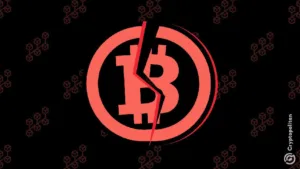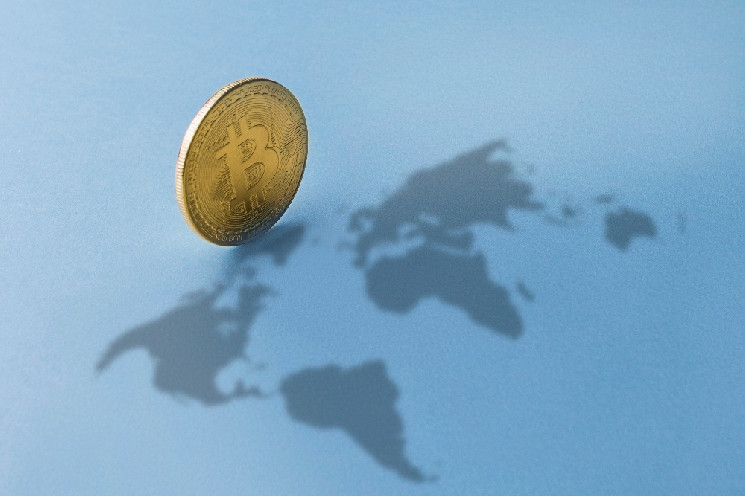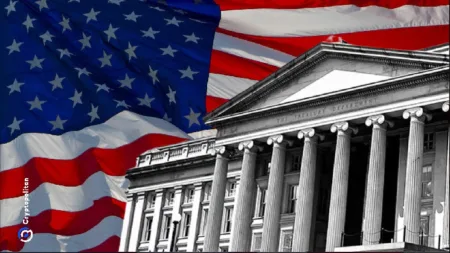As the rapid growth of cryptocurrency projects like Worldcoin continues to gain momentum in Ecuador, the country’s central bank (Banco Central del Ecuador, BCE) has reiterated that digital assets do not have legal status and cannot be used as an official electronic payment method.
The BCE’s statement comes in response to the increasing number of people in Ecuador engaging in cryptocurrency transactions, particularly through the Worldcoin project, which has seen thousands of individuals receiving a basic universal income in the form of 60 WLD tokens.
Worldcoin’s impact and public engagement in Ecuador
Worldcoin, a cryptocurrency project that launched in Ecuador just a few weeks ago, has quickly gained attention, with thousands of Ecuadorians participating in the program.
Social media reports indicate that hundreds of people have gathered in Guayaquil, one of Ecuador’s largest cities, to register for Worldcoin at designated locations equipped with Orbs that scan participants’ irises.
Despite the growing popularity of Worldcoin and other digital currencies, the BCE has emphasized that the US dollar remains the only currency with legal tender status in Ecuador.
This stance is supported by Article 94 of the Organic Monetary and Financial Code (COMF) and resolutions issued by the Monetary and Financial Regulation Policy Board (JPRM) in February 2022 and August 2023, which reaffirm the US dollar as the official currency for all transactions, monetary and financial processes, and accounting records in the country.
Payment method classification and cryptocurrency restrictions
On August 7, 2023, the JPRM further clarified the classification of payment methods in Ecuador through Resolution No. JPRM-2023-014-M.
According to this resolution, payment methods in Ecuador are categorized into three types: physical payment methods, electronic payment methods, and electronic wallets.
Electronic payment methods include electronic money transfers for payments and collections, credit and debit cards, and reloadable or non-reloadable prepaid cards.
Notably, cryptocurrencies are not included in this classification, meaning they are not recognized as legal tender or an authorized electronic payment method in Ecuador.
Ecuador’s growing crypto market despite regulatory constraints
Despite these regulatory restrictions, Ecuador has seen significant activity in the cryptocurrency market.
According to a report by US-based blockchain data firm Chainalysis titled “Geography of Cryptocurrencies 2023,” Latin America accounted for approximately 7.3% of the total global value of digital assets between July 2022 and June 2023.
Within the region, Ecuador ranked seventh for the value of cryptocurrencies received, with an estimated total of nearly USD 7 billion during this period.
The report suggests that Ecuadorians typically acquire cryptocurrencies through various means, including cash, credit or debit card payments, and local transfers.
However, the high volume of cryptocurrency transactions—totaling billions of dollars—raises questions about the primary methods of payment used.
If these transactions were primarily conducted through cash or credit cards, Ecuador would have likely experienced a significant outflow of foreign exchange, leading to a decrease in the country’s International Reserves.
Regulatory reminders and the future of digital assets in Ecuador
The JPRM and BCE have issued reminders to both citizens and businesses that cryptocurrencies are neither legal tender nor a valid payment method in Ecuador.
As digital assets continue to grow in popularity, the regulatory environment in Ecuador remains stringent, with authorities emphasizing the importance of adhering to existing legislation to maintain economic stability and financial integrity.
The rise of cryptocurrency projects like Worldcoin in Ecuador highlights the ongoing challenges and opportunities in the digital asset landscape.
While the country’s central bank maintains a firm stance on the legal status of cryptocurrencies, the increasing engagement of Ecuadorians in the crypto market suggests that the demand for digital assets will persist.
Moving forward, Ecuador’s regulatory framework will play a crucial role in shaping the future of cryptocurrency use within the country.
The post Ecuador’s BCE reaffirms cryptocurrency ban amid Worldcoin expansion appeared first on Invezz
Read the full article here









